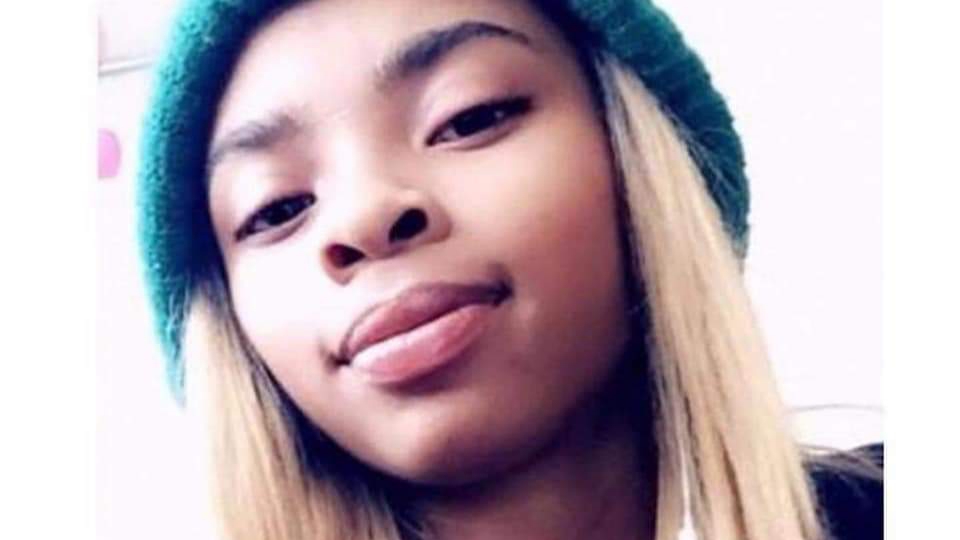There is nothing sweet at the intersection of human trafficking and inappropriate relationships for underage Black girls.
It is not the consenting or negotiable space that ill-informed people would have themselves believe. It is a crossway of power and impuissance, paternalism and subservience, and perversion and desperation, between a manipulative adult and a child. Associations that exist at these junction are vile, dismissed, favorable to the perpetrator and seemingly sufferable to the victim till it's not. That is, until someone loses their shit and somebody comes up dead.
Such is the argument in Chrystul Kizer's case. Seventeen-year-old Kizer was accused with fatally shooting, robbing, and setting afire Randall P. Volar III, a 34-year-old white man from Kenosha, Wisconsin, according to the Journal Sentinel. A criminal complaint accessed by Kenosha News, states Volar "helped her (Kizer) with money and places to stay," and “she got upset and was tired of Volar touching her.” On the night of his death, Volar paid for an Uber ride to transport the teenager from Milwaukee, to his home. According to Kenosha police the incident was not an aimless one.
"They had a history of prior contacts with each other." Lt. Tim Schaal told the Sentinel.
Mirroring cases
Kizer's case is eerily similar to that of Cyntoia Brown, who will be released from prison on August 7. In 2006, Brown was sentenced to 51 years in prison for killing and robbing 43-year-old Johnny Mitchell Allen, who picked her up at a Nashville Sonic and took her to his home to get some "action" for $150; Brown was just 16 years old at the time.
No matter how perplexing, both minors acted on juvenile instinct which was widely perceived as calculating, gangster, rogue. In a statement, it was reported that Cyntoia fled Mitchell's home with "$50,000, some guns and his truck" and later made comment that she "blew his brains out," while Kizer made away with Volar's laptop, money and BMW, and went on Facebook live and boasted about shooting a "white dude." Prosecutors in each case pursued convictions predicated on the belief Kizer and Brown are young murderous monsters and not children caught up in an insidious crime that overwhelmingly affects Black girls.
Writing on the wall
According to a National Crime Victim's Rights Week guide, 94 percent of sex trafficking victims are female. Roughly, 40.4 percent are African American compared to 25.6 percent Caucasian, 23.9 percent Latino, 4.3 Asian, 5.8 percent other. Incredulous as it may read, racial disparity in sex trafficking points to sex traffickers belief that "trafficking black women would land them less jail time if caught."
Alas, of the 82 percent of the federally funded investigations, 40.3 percent involved child prostitution and exploitation. Which brings up another factor in Kizer's case. Her predator was being investigated for child pornography, sexual conduct with minors and human or sex trafficking. Kizer's legal defense team filed a motion to gain access to that evidence; evidence that includes explicit videos and photographs of the young defendant and other females as well. Her next hearing is on September 6, before Judge David Wilk. Blavity reached out to Kizer's lawyer Carl Johnson who said he could not speak about the details of the case for obvious reasons.
"It's an uncomfortable situation, but we're working very hard to explore every defense for the best possible outcome in the case," Johnson told Blavity.
The road(s) ahead
All things considered in cases like Brown and Kizer's, the justice department is serving Black girls sentences up in the football numbers for protecting themselves against depraved men who prey on, manipulate and fuck children. If white men are allowed to stand their ground in an attempt to defend white privilege, Black girls should be able to defend their bodies at the slightest sign of threat.
Brown will have her first taste of freedom after serving 15 years in a Tennessee women's prison. She was granted clemency from outgoing Governor Bill Haslam on January 7, and not because she was a victim of one of the most pandemic crimes across the country, and not even because the system failed her, but rather her sentencing was "too harsh" and because "of the extraordinary steps Ms. Brown has taken to rebuild her life," According to Haslam.
Kizer is in for a tough fight. She is charged with first degree intentional murder and possibly facing life imprisonment. Hopefully, her case is given the concern and fairness it deserves, as there are many complexities at hand.
